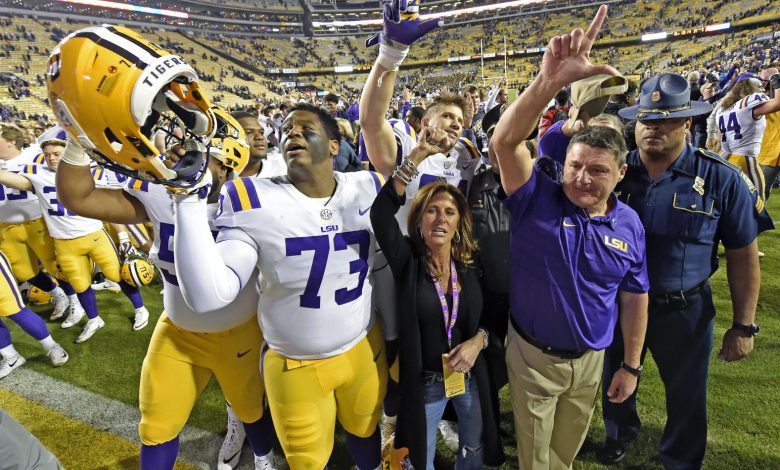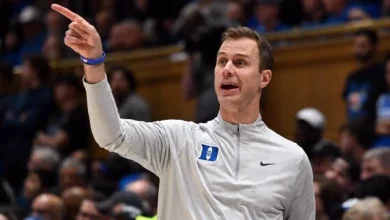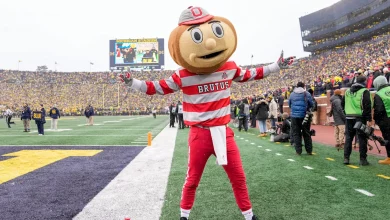How Baton Rouge’s Airbnb industry is impacted by LSU football

Baton Rouge, Louisiana, is a city defined by its rich cultural heritage, historical significance, and, of course, its deep-rooted passion for college football. At the heart of this passion is Louisiana State University (LSU) and its nationally renowned football program. For decades, LSU has captured the attention of not only the state of Louisiana but also football fans across the nation. From tailgating traditions to electrifying game days, LSU football has become a driving force in Baton Rouge’s economy, influencing everything from local businesses to tourism and, in recent years, the burgeoning Airbnb industry.
With the advent of short-term rental platforms like Airbnb, Baton Rouge’s hospitality landscape has shifted. The influx of college football fans, visiting families, alumni, and tourists seeking lodging during LSU football weekends has had a profound impact on the Airbnb market. These fans flock to Baton Rouge in droves to support the LSU Tigers during home games, filling the streets around Tiger Stadium, also known as Death Valley, with excitement, and, for many, turning the city into a temporary home base. This surge in demand for short-term accommodations has provided a golden opportunity for local property owners and hosts looking to capitalize on the boom brought by LSU football.
But while the benefits of LSU football for Baton Rouge’s Airbnb industry are clear, there are also challenges. The seasonal nature of football games, with home games concentrated in the fall, means that hosts must strategize and navigate a market with fluctuating demand. The game-day weekend crowd brings in large numbers of visitors, but there is also the question of how these influxes are managed and whether they are sustainable. As Baton Rouge continues to grow as a regional hub for tourism and business, understanding how LSU football impacts the local Airbnb industry is crucial to forecasting trends and ensuring the long-term success of both the tourism and short-term rental markets.
In this article, we will explore the intricate relationship between LSU football and the Airbnb industry in Baton Rouge, examining how football season impacts supply and demand, the benefits to local hosts, and the challenges that come with hosting during game-day weekends. Additionally, we will look at how Baton Rouge has adjusted to accommodate the booming rental market, offering a closer look at the city’s evolving hospitality industry.
The Growth of Airbnb in Baton Rouge
In recent years, Baton Rouge has experienced significant growth in the Airbnb market, with both homeowners and renters eager to participate in the lucrative short-term rental industry. According to reports from AirDNA, a company that analyzes Airbnb data, the number of active Airbnb listings in Baton Rouge has steadily increased, particularly during LSU football season. This is not unique to Baton Rouge—many college towns have seen similar growth as fans seek more personalized, cost-effective accommodations during football weekends.
Before the rise of Airbnb, visiting fans typically relied on traditional hotels for accommodations. However, many fans prefer the comfort and home-like amenities that Airbnb properties offer, such as full kitchens, more space for family gatherings, and proximity to the stadium. With the increased popularity of Airbnb, Baton Rouge has seen both the number of listings and the average rental prices spike during LSU football season, especially around home games.
During peak seasons like football weekends, demand for Airbnb properties in Baton Rouge can surge dramatically. It is not unusual for hosts to see their listings booked months in advance, particularly for high-demand games such as LSU’s rivalry games against teams like Alabama, Auburn, and Texas A&M. Visitors who might otherwise opt for a traditional hotel now see short-term rentals as an ideal solution—offering more flexibility, affordability, and a closer experience to local culture and the LSU football atmosphere.
Football Games as a Catalyst for Demand
One of the primary reasons Baton Rouge’s Airbnb market thrives during football season is the sheer number of visitors LSU football brings to the area. Each home game attracts thousands of fans, many of whom need places to stay. During an LSU football weekend, the city can see an influx of 30,000-50,000 visitors, many of whom are coming to watch the game at Tiger Stadium. This leads to an unprecedented surge in demand for accommodations.
For LSU football fans, Baton Rouge is the beating heart of their college experience, and staying close to the stadium is often a priority. As Airbnb offers properties that range from cozy apartments near downtown to spacious homes within walking distance of Tiger Stadium, fans seeking a place to stay during game weekends are spoilt for choice.
The demand for Airbnb rentals is not just about the games themselves. Many fans arrive days in advance to take part in LSU’s legendary tailgating culture, and the pre-game festivities are an integral part of the experience. Fans travel to Baton Rouge to soak up the atmosphere, enjoy local food and music, and participate in the Tiger Walk—the tradition of LSU fans greeting the football team before they head into the stadium. With this, there’s often a demand for accommodations that are not only close to the stadium but also offer a comfortable base for these activities.
Moreover, fans coming to Baton Rouge for LSU football games tend to book for longer stays than typical business travelers or tourists, making the football season a critical time for Airbnb hosts to maximize their income. This seasonal demand allows many Baton Rouge hosts to charge higher nightly rates, especially during home game weekends. Hosts can often make as much in a single football weekend as they would in an entire month of typical bookings.
Impact on Property Owners and Hosts
For many Baton Rouge property owners, LSU football season represents an opportunity to earn substantial income through Airbnb. With high demand and premium pricing for rentals during game weekends, many property owners view these weekends as a critical period in their annual revenue stream.
A number of property owners, particularly those with homes near the LSU campus or within walking distance of Tiger Stadium, report earning thousands of dollars during football season. This influx of visitors has allowed homeowners who might otherwise not have participated in the Airbnb market to join in the rental boom. For example, a property that might typically rent for $100-150 per night could easily fetch $500-800 per night during peak game weekends.
These premium rates can significantly impact the profitability of the Airbnb industry in Baton Rouge. As more hosts look to capitalize on the demand, the market becomes increasingly competitive. For hosts, this means that keeping up with local trends—such as offering amenities tailored to LSU football fans—becomes crucial to success. Properties with easy access to transportation, comfortable common areas for gatherings, and LSU-themed decorations can set themselves apart from the competition.
However, while there are clear benefits for property owners during football weekends, there are also challenges. The seasonal nature of football means that hosts must be able to fill their calendars during off-peak months, such as summer or the spring, when fewer visitors are coming to Baton Rouge for LSU-related events. Additionally, maintaining consistent booking rates during non-football seasons can be difficult, especially when competing with traditional hotel chains that have more stable booking patterns.
Challenges for Hosts: Managing the Seasonal Rush
Although LSU football games undoubtedly drive demand, Baton Rouge’s Airbnb hosts face challenges managing the high-volume demand during home game weekends. One of the primary issues for hosts is overbooking, as some may not anticipate the intense competition for rental spaces. With many visitors booking months in advance, a host’s calendar can fill up quickly, leaving less room for flexibility or last-minute bookings.
Another challenge lies in the price fluctuations that come with high-demand periods. While raising nightly rates for a football weekend can be financially lucrative, it can also turn off potential guests who are looking for more affordable options. Additionally, hosts must balance the need to generate higher profits during busy times with the goal of ensuring that their listing stays competitive and desirable.
For some hosts, the transient nature of football weekends can also be difficult to manage. The turnover between guests can be rapid, requiring cleaning and restocking between bookings, especially when back-to-back games occur in a short span of time. This logistical challenge is often exacerbated by the quick turnaround time needed to accommodate guests for multiple game weekends.
The Economic Ripple Effect: Local Business and Community Impact
Beyond the immediate impact on Baton Rouge’s Airbnb market, LSU football also has a wider economic ripple effect on the city. The influx of visitors during football weekends provides a boost to the local economy, benefiting businesses from restaurants and bars to local shops and entertainment venues. Many football fans who rent through Airbnb are also spending money on food, drinks, and souvenirs, contributing to a positive economic cycle that extends far beyond the rental properties themselves.
Additionally, LSU football has a positive impact on Baton Rouge’s tourism industry, with the demand for lodging and local services encouraging the development of new businesses and tourism-related infrastructure. This, in turn, creates jobs and brings economic growth to the area.









